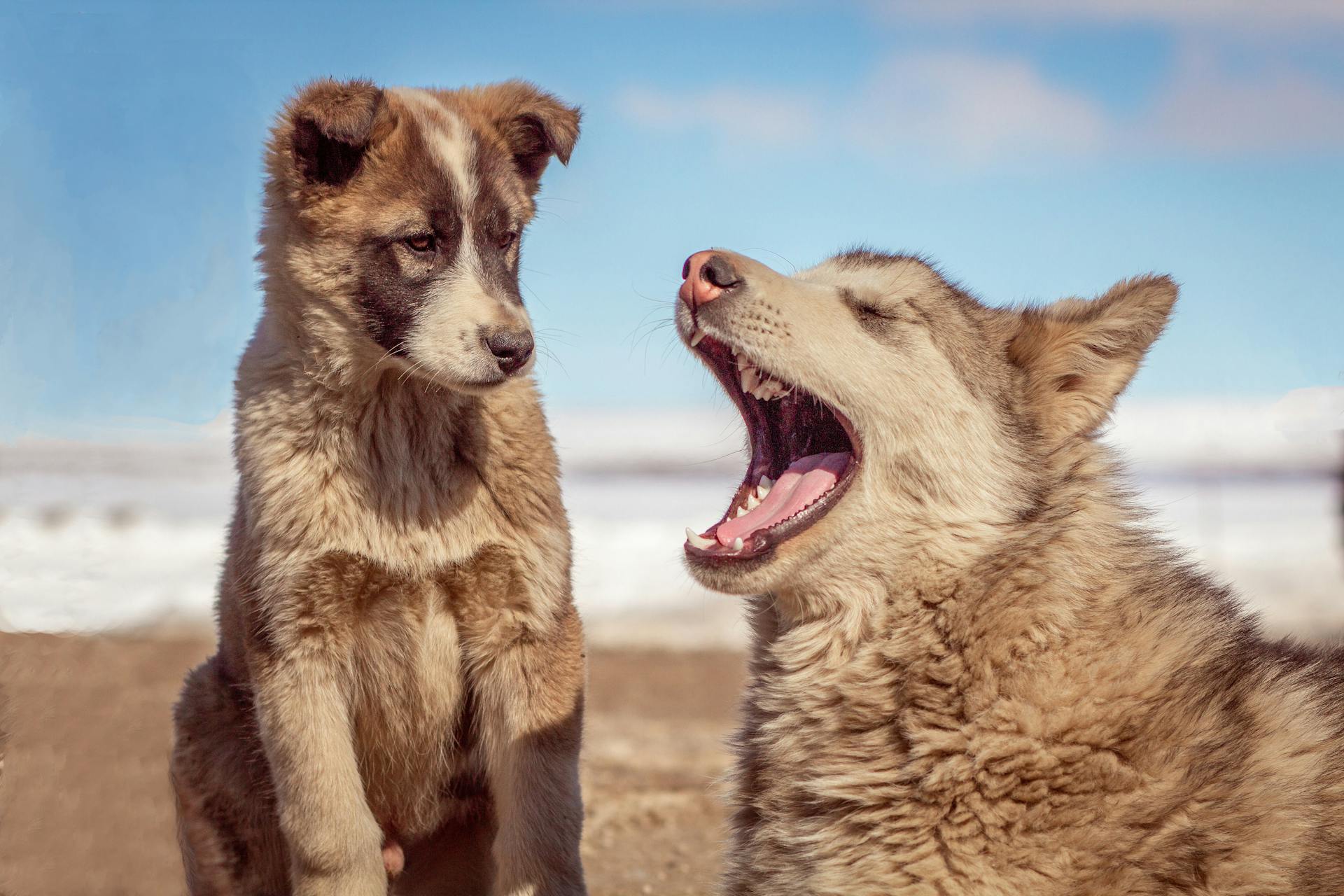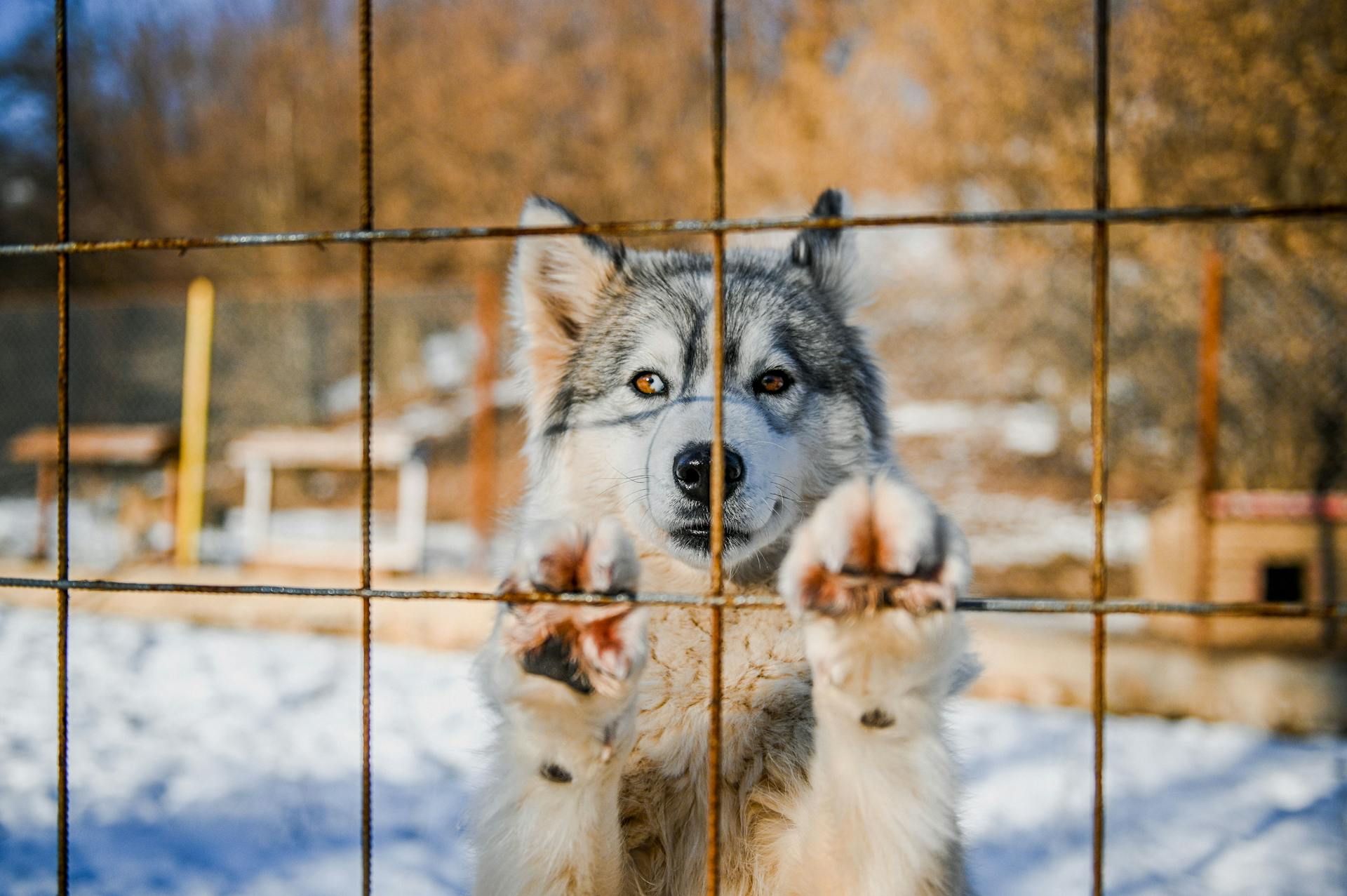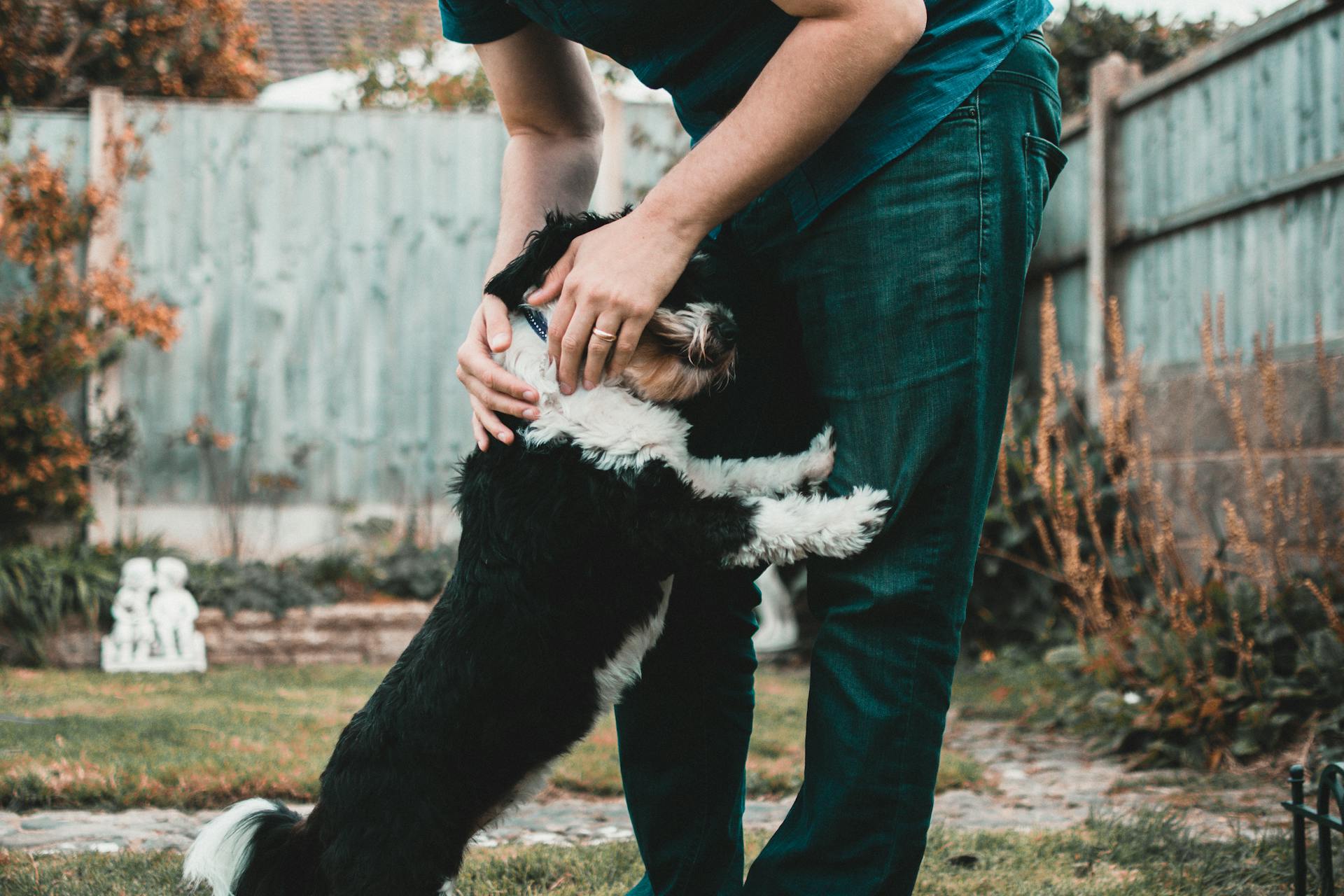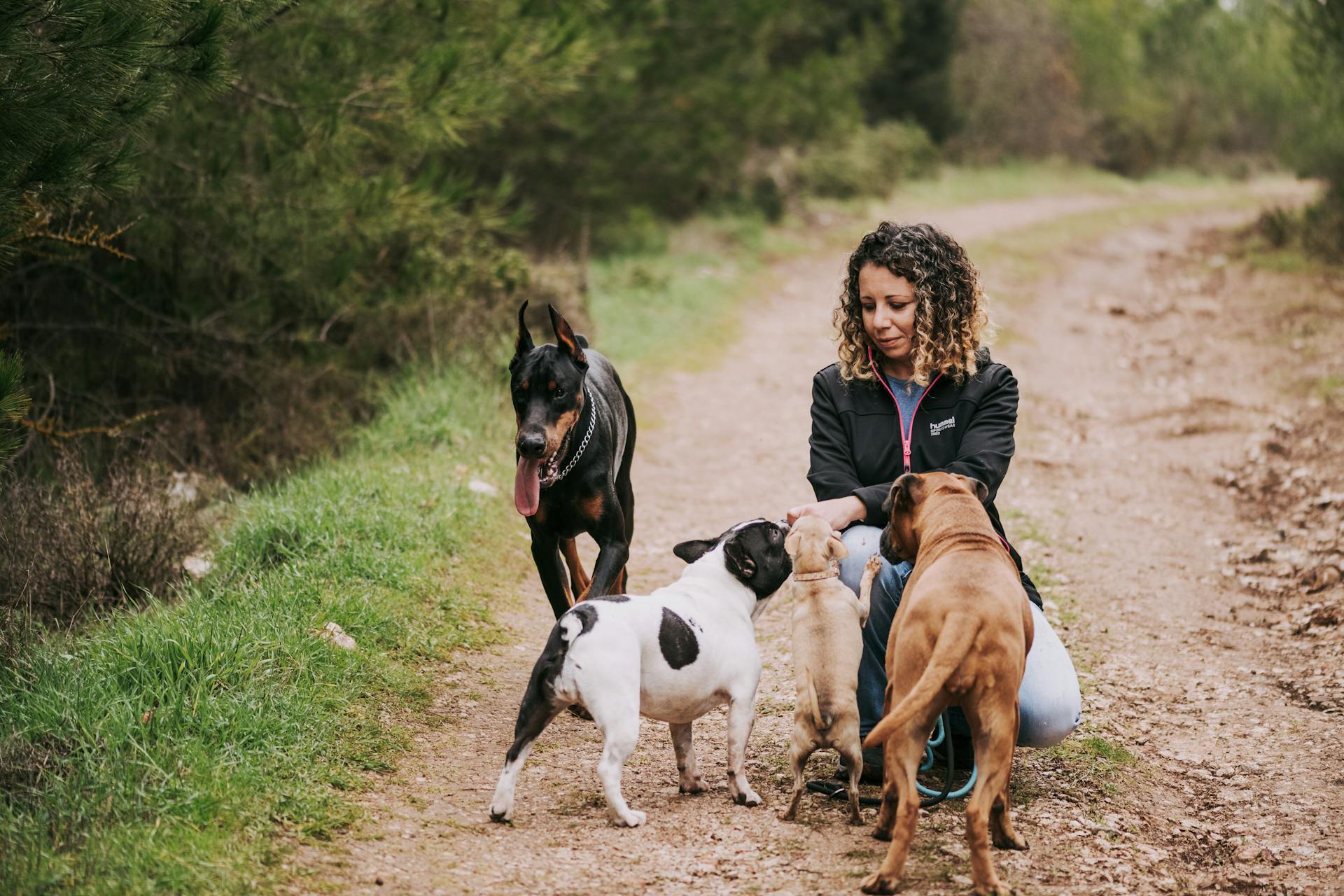
Reverse sneezing in dogs can be a distressing sight, but it's a relatively common condition that affects many canine companions.
Dogs typically exhibit reverse sneezing by making loud, high-pitched sounds while inhaling through their nose.
The causes of reverse sneezing in dogs are varied, but one of the most common reasons is an irritation of the nasal passages.
This irritation can be triggered by allergies, foreign objects, or even the anatomy of a dog's nose.
What Is Reverse Sneezing in Dogs?
Reverse sneezing in dogs is a condition that causes them to rapidly pull air in through the nose, producing a loud snorting sound. It's a reflex action that helps clear the nasal passages of irritants or mucus.
Most reverse sneezing episodes last for less than a minute, but can be frightening for pet parents. Typically, a dog will raise their head, extend their neck, and begin making a loud snorting noise during a reverse sneezing episode.
Reverse sneezing is usually harmless and self-resolves, but it's a good idea to consult with a veterinarian if your dog experiences frequent or prolonged episodes. This can help rule out any underlying respiratory issues.
What Is a Sneeze?
A sneeze is a natural reflex that helps protect a dog's airways by expelling irritants. It's a sudden release of air from the lungs through the nose and mouth.
Typically, a sneeze sounds like a loud, sharp "achoo" noise.
Here's an interesting read: Do Dogs Sneeze with Kennel Cough
What Is?
Reverse sneezing, also known as pharyngeal gag reflex, is a common condition in dogs, particularly smaller and short-nosed dogs.
This condition can seem very distressing when it's occurring, but it's generally harmless and passes within just a minute or two.
A veterinarian should be consulted if the condition starts occurring regularly in an older dog, or if it's accompanied by additional symptoms such as nasal discharge or coughing.
This is because other disorders may be present that are not as harmless as reverse sneezing.
Causes and Triggers
Reverse sneezing in dogs can be caused by a variety of factors, including allergies, eating or drinking too fast, and foreign bodies in the nasal passages.
Allergies are a common trigger, with environmental allergens like pollen, molds, dust mites, and grasses often causing irritation. Household products, grooming products, and even infections can also lead to a reverse sneeze.
Eating and drinking too quickly can also irritate the soft palate, leading to a reverse sneeze. Some dogs may also sneeze when they get excited or experience pressure on their throat, such as when pulling on a leash.
Some possible irritants that can cause a reverse sneeze include dust, nasal mites, seeds, grass, pollen, and smoke. Certain conditions, like masses or an elongated soft palate, can also trigger a reverse sneeze.
Here are some common triggers of reverse sneezing in dogs:
- Allergies
- Eating or drinking too fast
- Foreign bodies
- Mites
- Pressure on throat (often from pulling on leash)
- Viruses
- Nasal mites
- Overexcitement
- Eating and drinking
It's worth noting that some breeds, such as pugs and bulldogs, are more prone to reverse sneezing due to their elongated soft palate. Small-breed dogs are also more likely to experience reverse sneezing due to their smaller nasopharyngeal region.
Symptoms and Diagnosis
Reverse sneezing in dogs can be a concerning sight, but it's often a temporary and harmless condition. A reverse sneezing episode typically lasts about one to two minutes.
Symptoms of reverse sneezing include an extended neck, gasping, difficulty drawing air, and a snorting sound. The dog may also exhibit labored breathing, exercise intolerance, and a bluish tinge to the gums and other mucous membranes.
If you suspect your dog is experiencing reverse sneezing, it's essential to observe the episode carefully and take note of any other symptoms. A video recording of the episode can be helpful for your veterinarian in determining the cause.
Here are some common signs of reverse sneezing:
- Dog breathing heavily through the nose
- Honking or snorting noise
- Rapid, noisy breathing
- Head and neck extended forward
- Eyes are bulging or watering
Your veterinarian will ask about your dog's medical history, environment, and any potential irritants or allergens that may have triggered the episode. A physical exam, including taking your dog's temperature, palpating their throat, and listening to their chest, will also be performed.
Consider reading: Why Are My Dog's Nails Splitting?
Symptoms of Canines

Symptoms of Canines Reverse Sneezing can be quite alarming, but understanding what to look for can help you identify the issue.
A classic episode of reverse sneezing can be mistaken for coughing, but there are some key differences. The dog will breathe heavily through the nose, often with deep breaths coming from the mouth.
If your dog is experiencing a reverse sneezing episode, you may notice a loud honking or snorting noise as they forcefully pull air through their nose. This sound is often compared to a goose honking.
As the dog struggles to breathe, you may notice rapid, noisy breathing patterns. This can be accompanied by the dog's head and neck extending forward, with the eyes bulging or watering.
Here are some common symptoms of canine reverse sneezing:
- Dog breathing heavily through the nose
- Honking or snorting noise
- Rapid, noisy breathing
- Head and neck extended forward
- Eyes are bulging or watering
These symptoms usually last about 30 seconds, but if your dog shows other signs such as lethargy, coughing, or difficulty breathing, seek immediate veterinary care.
How Vets Diagnose

When your dog exhibits symptoms of reverse sneezing, it's essential to consult a veterinarian to rule out any underlying conditions. Your vet will ask about your dog's environment and medical history to help narrow down the possible causes.
They'll also ask if your dog was exposed to any respiratory irritants, has seasonal allergies, or ingested any foreign objects, as these can trigger reverse sneezing episodes. This information is crucial in determining the underlying cause of the behavior.
A physical examination will be performed to assess your pet's heart and lungs, and your vet will look for any other respiratory signs such as nasal discharge or an increased respiratory rate or effort. Your vet will also take your dog's temperature, palpate their throat, and listen to their chest.
Additional tests may be performed to rule out other causes of similar snorting noises, such as collapsing trachea, nasal tumor or polyps, nasal foreign body, upper respiratory tract infection, or inflammation (rhinitis). These tests may include a chest X-ray, a sedated oral and nasal exam, and possibly a rhinoscopy.
A unique perspective: Can Shiba Inu Hit 1 Cent

Here are some possible diagnostic tests your vet may recommend:
- Chest X-ray
- Sedated oral and nasal exam
- Rhinoscopy
- Complete blood count
- Serum blood chemistry
- Urinalysis
A sample from the nasal passages may also be taken for biopsy to rule out nasal cancer. Your vet may also ask for a video recording of an episode to assist in the diagnosis.
A fresh viewpoint: Dog Nasal Tumor Reverse Sneezing
Episode Treatment
If your dog is experiencing a reverse sneezing episode, stay calm and upbeat to help ease their anxiety and stress. You can also try distracting your dog with a toy, treat, or dinner to take their mind off the episode.
To help shorten the duration of the attack, try channeling the air through your dog's mouth rather than their nasal passages. This can be done by closing off their nostrils with your hand for a few seconds and allowing them to breathe through their mouth instead.
You can also try gently lifting your dog's head up and then down, or lightly massaging their throat to encourage them to swallow. This may help stop the episode.
Expand your knowledge: Healthy Mouth Water Additive for Dogs
In many cases, reverse sneezing episodes will resolve on their own in less than one minute, even if you don't intervene. However, if the problem persists or is chronic, it's essential to work with your veterinarian to diagnose the underlying cause and provide appropriate treatment.
Here are some common treatments that may be prescribed by your veterinarian if your dog's reverse sneezing episodes are caused by an underlying condition:
- Non-steroidal anti-inflammatories
- Steroids
- Anti-histamines
- Decongestants
In some cases, your veterinarian may prescribe medications to treat the underlying cause of the reverse sneezing, such as allergies or nasal mites. If your dog is diagnosed with nasal mites, your vet will typically treat them with an anti-parasitic medication like ivermectin or milbemycin oxime.
Frequently Asked Questions
What can be mistaken for reverse sneezing in dogs?
Reverse sneezing in dogs can be mistaken for respiratory distress, coughing, or choking, which can be alarming for pet owners. If you suspect your dog is experiencing any of these symptoms, it's essential to seek veterinary attention to rule out underlying health issues.
Is reverse sneezing a symptom of kennel cough?
Reverse sneezing is not a definitive symptom of kennel cough, as it can be a normal occurrence in some dogs. However, kennel cough may be accompanied by reverse sneezing in some cases, along with other symptoms like sneezing and runny nose.
How much is too much reverse sneezing in dogs?
Excessive reverse sneezing in dogs is typically defined as more than one or two episodes per day lasting over 1 minute. If you notice this, consult your vet to rule out underlying health issues
How do you stop a small dog from sneezing reverse?
To stop a small dog from sneezing, try gently massaging the throat or blowing into their face to encourage swallowing. If the sneezing persists, comforting and calming the dog can also be a helpful approach.
Can reverse sneezing in dogs last for days?
Reverse sneezing episodes in dogs typically last less than a minute, but in rare cases, they can persist for longer periods. If your dog's condition persists, consult with your veterinarian for proper evaluation and treatment.
Sources
- https://www.berkeleydogandcat.com/site/blog/2022/05/15/dog-reverse-sneeze
- https://wagwalking.com/condition/reverse-sneezing
- https://www.petmd.com/dog/general-health/reverse-sneezing-in-dogs
- https://www.ethosvet.com/blog-post/reverse-sneezing-in-dogs/
- https://bettervet.com/resources/pet-health-care/reverse-sneezing-in-dogs
Featured Images: pexels.com


